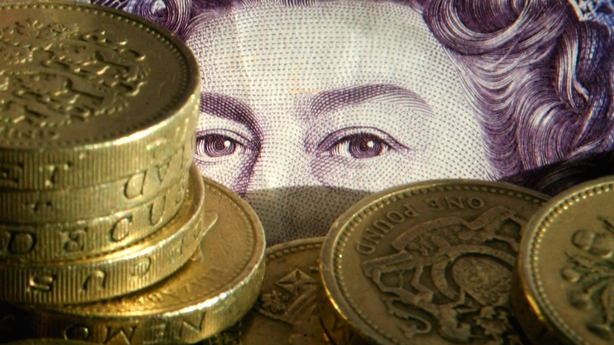Central Bank Governor Philip Lane has said Irish banks are “adequately capitalised but remain vulnerable to a downturn”.
Mr Lane was speaking following the latest European Banking Authority financial stress test, which showed that both AIB and Bank of Ireland came out with some of the worst results among 51 EU lenders.
Addressing the Institute for International and European Affairs this afternoon, the Central Bank Governor said the tests “confirmed that risks within the banking sector are manageable at a system-wide level”.
Explaining the poor performances of both AIB and Bank of Ireland in the tests, he said the Irish banking system has experienced higher loan loss rates since 2008, when compared to other EU member states and projected credit losses are calculated on past experience.
Mr Lane said the “capital depletion in the adverse scenario is inevitably more pronounced for Irish institutions”.
However, he said Irish banks remain vulnerable to a downturn due to issues surrounding non-performing loans and sustaining current profitability levels.
Shares in Irish banks, meanwhile, have continued to fall in the wake of the stress tests. By the close of trade this evening Bank of Ireland was down 6.1%, AIB fell 11.4% and Permanent TSB dropped 2.7%.
In his speech, Mr Lane welcomed the recent positive IMF report on Ireland, which showed steady progress with regard to both economic recovery and regulatory supervision post-crisis.
He added it "represents a further marker of the re-normalisation of Ireland's relationship with the IMF".
Irish economy vulnerable to 'harder' Brexit
The Central Bank Governor said given the full fallout from the UK's Brexit vote is yet to be determined, it may impact the bank's economic forecasts.
Mr Lane said while we are yet to see Brexit triggering "a more general international decline in confidence", the Irish economy has become less reliant on the UK in recent decades.
He also said it was important to contextualise sterling's recent fall against the euro, saying it can be interpreted as "an unwinding of the bilateral appreciation that began in Summer 2014".

He pointed out that the current rate (€1= £0.84) is "remarkably close" to the average rate between 2009 and 2014 (€1= £0.85).
However, Mr Lane said if a "harder" form of Brexit emerges, Ireland - given its strong links to the UK - would be "especially vulnerable to any Brexit-related reversal" in sentiment.
Following recent criticism of metrics used to measure economic performance (notably the CSO data showing Irish GDP was 26% last year), Mr Lane said proper implementation of the UN-Eurostat manuals "does not provide sufficient guidance".
He said some measurements should be redesigned, and welcomed the CSO's new consultative group - which he will chair - that has been set up to address this issue.
However, the Central Bank Governor said in any case "policymakers should take care to look through the headline and financial accounts data".

